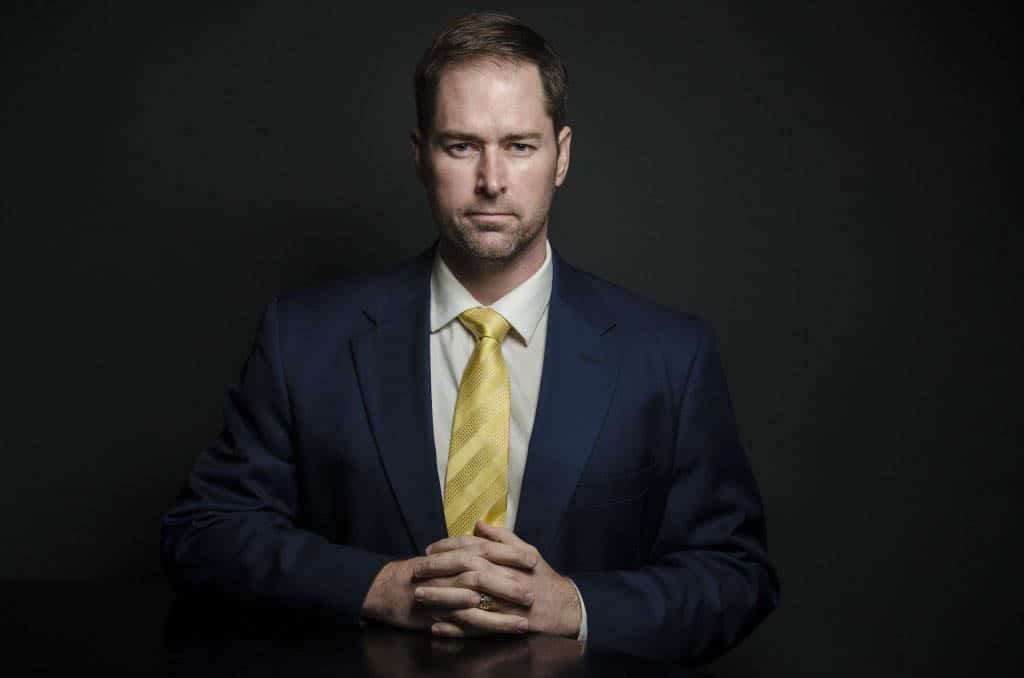Chapter 7 Bankruptcy Lawyers - Nick Davis Law
Debts Discharged in Chapter 7 BankruptcyChapter 7 bankruptcy offers powerful financial relief by eliminating unsecured debts, providing immediate protection from creditor harassment, wage garnishments, and lawsuits. At Nick Davis Law, we guide you every step of the way, ensuring your assets are protected under Texas law.
Serving Montgomery, Harris, Fort Bend, Brazos, Grimes, Waller, Walker & Surrounding Counties
Chapter 7 Bankruptcy: A Path to Debt Freedom in The Woodlands, Conroe, Katy, Houston, College Station, Texas

When debts become overwhelming, Chapter 7 bankruptcy is one of the most effective tools to regain control of your financial life. Whether you’re struggling with credit card debt, medical bills, or personal loans, Chapter 7 can help wipe out unsecured debts, giving you a fresh start. However, not all debts are dischargeable, and secured debts like mortgages and car loans are handled differently.
At Nick Davis Law, we help you understand which debts can be discharged, and we work tirelessly to protect your assets. Our experienced attorneys will guide you through the process to ensure you get the debt relief you need.
Take the first step toward debt relief today. Contact Nick Davis Law at (936) 262-7474 for a free consultation. We proudly serve The Woodlands, Katy, and surrounding Texas counties.
What Debts Can Chapter 7 Bankruptcy Eliminate?
Types of Debts Discharged in Chapter 7
Chapter 7 bankruptcy can eliminate most unsecured debts, allowing you to regain control of your finances without the burden of constant creditor calls and threats. Here’s what you can expect to discharge under Chapter 7:
-
Credit Card Debt:
Struggling with high-interest credit card balances? Chapter 7 wipes out these debts, ending the cycle of minimum payments and endless interest charges. -
Medical Bills:
Unexpected health issues often lead to massive medical bills. Chapter 7 bankruptcy allows you to eliminate medical debt, regardless of the amount. -
Unsecured Personal Loans:
Payday loans, personal loans, and other unsecured debts can be discharged, giving you the freedom to move forward without repayment obligations. -
Utility Bills (Past Due):
If you’re behind on your utility bills, Chapter 7 can discharge those debts, helping you stay on top of essential services like electricity, water, and gas. -
Lawsuit Judgments:
In some cases, judgments related to unsecured debts—such as breach of contract or unpaid obligations—can be eliminated through Chapter 7.
Find out how Chapter 7 bankruptcy can eliminate these debts and give you a fresh financial start.
What Debts Cannot Be Discharged in Chapter 7 Bankruptcy?
Which Debts Are Non-Dischargeable?
Although Chapter 7 can eliminate many of your financial obligations, some debts cannot be discharged, and you’ll still be responsible for them after filing. It’s essential to understand these non-dischargeable debts:
- Student Loans:
Generally, student loans are not dischargeable in Chapter 7 bankruptcy. However, if you can prove undue hardship, you may be able to eliminate them in rare cases. - Recent Taxes:
Income taxes from recent years are typically non-dischargeable, but under certain conditions, older tax debts may qualify for discharge. - Child Support and Alimony:
Family obligations such as child support and alimony cannot be eliminated in Chapter 7 bankruptcy. - Court-Ordered Fines and Restitution:
Any fines or restitution from criminal cases or civil penalties are also non-dischargeable. - Debts from Fraud:
Debts incurred through fraud or false pretenses cannot be discharged under Chapter 7.
Don’t wait until it’s too late to act. Contact Nick Davis Law Bankruptcy Relief Lawyers today for a free consultation at (936) 262-7474 and assistance in filing for Bankruptcy in The Woodlands, Houston, Katy, and College Station.
OVERVIEW OF CHAPTER 7
COMMON QUESTIONS
CREDIT COUNSELING
341 MEETING
BENEFITS OF CHAPTER 7 BANKRUPTCY
CHAPTER 7 VS. CHAPTER 13
MEANS TEST & ELIGIBILITY FOR CHAPTER 7
FILING FOR CHAPTER 7 IN TEXAS
DEBTS DISCHARGED IN CHAPTER 7
PROTECTING ASSETS
TEXAS EXEMPTIONS
TEXAS SPECIFIC BANKRUPTCY
ROLE OF TRUSTEE
EMERGENCY BANKRUPTCY
IMPACT OF CHAPTER 7
LIFE AFTER CHAPTER 7
BANKRUPTCY LITIGATION
ADDITIONAL BANKRUPTCY AREAS
ALTERNATIVES TO BANKRUPTCY
CHAPTER 11 BANKRUPTCY
How Are Secured Debts Handled in Chapter 7 Bankruptcy?
What Happens to Your House, Car, or Secured Debts During Chapter 7 Bankruptcy?
Secured Debts: Your Options
Secured debts are loans backed by collateral, such as a mortgage on your home or a loan on your vehicle. While Chapter 7 can discharge your personal liability on these debts, it doesn’t eliminate the lender’s right to seize the collateral. Here’s how you can handle secured debts during bankruptcy:
- Mortgages and Car Loans:
To keep your home or vehicle, you’ll need to continue making payments on the loan. If you’re unable to keep up with payments, you can choose to surrender the property and discharge the remaining debt. - Reaffirmation Agreements:
You can also reaffirm secured debts by signing a reaffirmation agreement. This allows you to keep the collateral and continue paying off the loan as if the bankruptcy had never occurred. - Surrendering Collateral:
If you can’t afford to keep the property, Chapter 7 lets you surrender the collateral to the lender and eliminate the debt, allowing you to walk away without further liability. - Liens:
While your liability on the secured debt may be discharged, the lien on the property remains intact unless it’s removed through legal action.
Chapter 7 Bankruptcy Puts an Immediate Stop to Creditor Harassment and Legal Actions
Immediate Relief: How Chapter 7 Bankruptcy Stops Creditor Harassment, Garnishments, and Lawsuits?
How Chapter 7 Protects You Immediately
The moment you file for Chapter 7 bankruptcy, an automatic stay is triggered, halting all collection activities. This protection gives you breathing room to resolve your debts without fear of harassment or legal action. Here’s how Chapter 7 bankruptcy stops creditors in their tracks:
-
Creditor Harassment:
The automatic stay stops creditors from contacting you for payments. No more harassing phone calls, letters, or surprise visits. -
Wage Garnishments:
If your wages are being garnished, filing for Chapter 7 immediately stops garnishments, allowing you to keep more of your paycheck. -
Lawsuits and Judgments:
Ongoing lawsuits related to unpaid debts are also halted by the automatic stay, giving you time to reorganize your finances without the threat of legal judgments. -
Foreclosure and Repossession:
While Chapter 7 may not permanently stop foreclosure or repossession, the automatic stay can temporarily halt these actions, giving you time to consider your options.
FAQ
Frequently Asked Questions
What debts can be discharged in Chapter 7 bankruptcy?
Chapter 7 discharges most unsecured debts, such as credit card debt, medical bills, and personal loans. Certain debts like student loans, taxes, and child support are typically non-dischargeable.
Will Chapter 7 stop wage garnishment?
Yes, filing for Chapter 7 triggers an automatic stay that immediately stops wage garnishments, allowing you to keep your earnings.
Can Chapter 7 bankruptcy eliminate taxes?
Older income taxes may be eligible for discharge, but recent tax debts are typically not discharged in Chapter 7.
Can I discharge payday loans in Chapter 7 bankruptcy?
Yes, payday loans are typically considered unsecured debt, which means they can be discharged in Chapter 7 bankruptcy. However, if you took out a payday loan shortly before filing, it may raise concerns with the court. Loans taken out within 90 days of filing can be viewed as fraudulent, and the creditor may object to their discharge. It’s important to discuss the timing of any recent loans with your attorney.
Are student loans dischargeable in Chapter 7 bankruptcy?
In most cases, student loans are not dischargeable in Chapter 7 bankruptcy. However, if you can prove “undue hardship”—which is a very high standard—you might be able to discharge them. This usually requires filing a separate lawsuit within the bankruptcy case, called an adversary proceeding, and demonstrating that repaying the loans would make it impossible to maintain a basic standard of living.
Can Chapter 7 eliminate debts from a recent divorce, like alimony or child support?
No, alimony and child support obligations are considered non-dischargeable in Chapter 7 bankruptcy. These debts must continue to be paid as they are viewed as necessary for the support of dependents. However, other types of divorce-related debts, such as property settlement agreements, might be dischargeable, depending on how the court categorizes them. It’s important to get legal advice to understand how your divorce debts will be treated.
Is credit card fraud or luxury spending dischargeable in Chapter 7?
If you’ve used credit cards for luxury goods or services (over $950) within 90 days before filing, or taken out cash advances (over $1,000) within 70 days of filing, the creditor can challenge the discharge of those specific charges. These could be deemed fraudulent because they might be seen as borrowing with no intent to repay. However, regular credit card purchases are generally dischargeable.
Can I discharge medical debt in Chapter 7 bankruptcy?
Yes, medical bills are fully dischargeable in Chapter 7 bankruptcy, and they are often one of the primary reasons people file. If you’ve been overwhelmed by unexpected medical expenses or ongoing healthcare costs, filing for Chapter 7 can help you eliminate this debt and start fresh without the burden of paying off those bills over time.
Are personal loans from friends and family dischargeable?
Yes, personal loans from friends or family members can be discharged in Chapter 7 bankruptcy. While this might feel uncomfortable, bankruptcy law requires that you treat all creditors equally, which means these debts must be included in your filing. After your bankruptcy is complete, you may choose to repay friends or family voluntarily, but there is no legal obligation to do so once the debt has been discharged.
Can I discharge past due rent or lease agreements in Chapter 7 bankruptcy?
Yes, past due rent can be discharged in Chapter 7 bankruptcy, which includes any unpaid rent or lease obligations that existed before the filing date. However, if you want to remain in your rental property, you’ll likely need to catch up on rent and reaffirm your lease. If you plan to move out, filing for bankruptcy can help you eliminate the financial liability for breaking the lease.
From the Blog
Recent Articles
Take Control of Your Financial Future Today
FLEXIBLE APPOINTMENTS | PAYMENT PLANS
At Nick Davis Law, we understand that bankruptcy is a complex and emotional process. Whether you’re an individual facing overwhelming personal debt or a business looking to restructure, we’re determined to guide you through every step. Bankruptcy is not the end—it’s the beginning of a new, more secure financial future.
Get a Free Consultation Now
Contact Nick Davis Law, serving The Woodlands, Katy, Houston, College Station and surrounding cities and counties. Take control of your financial future today—call us at (936) 262-7474. Our Montgomery, Harris, Fort Bend, Walker, Brazos, Grimes, Waller County Bankruptcy Lawyers regularly offer After-Hour & Weekend Phone and Virtual Consults and Payment Plans.
Contact us
Nick Davis Law
26418 Oak Ridge Dr.
The Woodlands, TX 77380
(936) 262-7474
The Woodlands, Texas
26418 Oak Ridge Dr.
The Woodlands, TX 77380
(936) 262-7474
Appointments Only
Bryan | College Station, Texas
750 William D. Fitch Pkwy, Ste 210
College Station, TX 778455
(979) 417-2220
Business Hours
Mon - Fri 8:00 am to 6:00 pm
Our Mission
The Trusted Family, Divorce, Bankruptcy, CPS, and Small Business Lawyers at Nick Davis Law are dedicated to providing the best and most efficient representation possible to our clients to achieve their goals quickly and cost effectively. Nick Davis Law maintain offices in The Woodlands, Katy, Texas and Bryan | College Station and serve all of Montgomery County, Brazos County, Walker County, Waller County, Grimes County, Washington County, Burleson County, San Jacinto County, Liberty County, Harris County, and surrounding counties.

 Nick Davis Law is a firm dedicated to helping individuals with all their family law needs and serves Montgomery, Harris, Waller, Grimes, Walker, Brazos, Washington, Burleson, Fort Bend and surrounding counties.
Nick Davis Law is a firm dedicated to helping individuals with all their family law needs and serves Montgomery, Harris, Waller, Grimes, Walker, Brazos, Washington, Burleson, Fort Bend and surrounding counties. 
